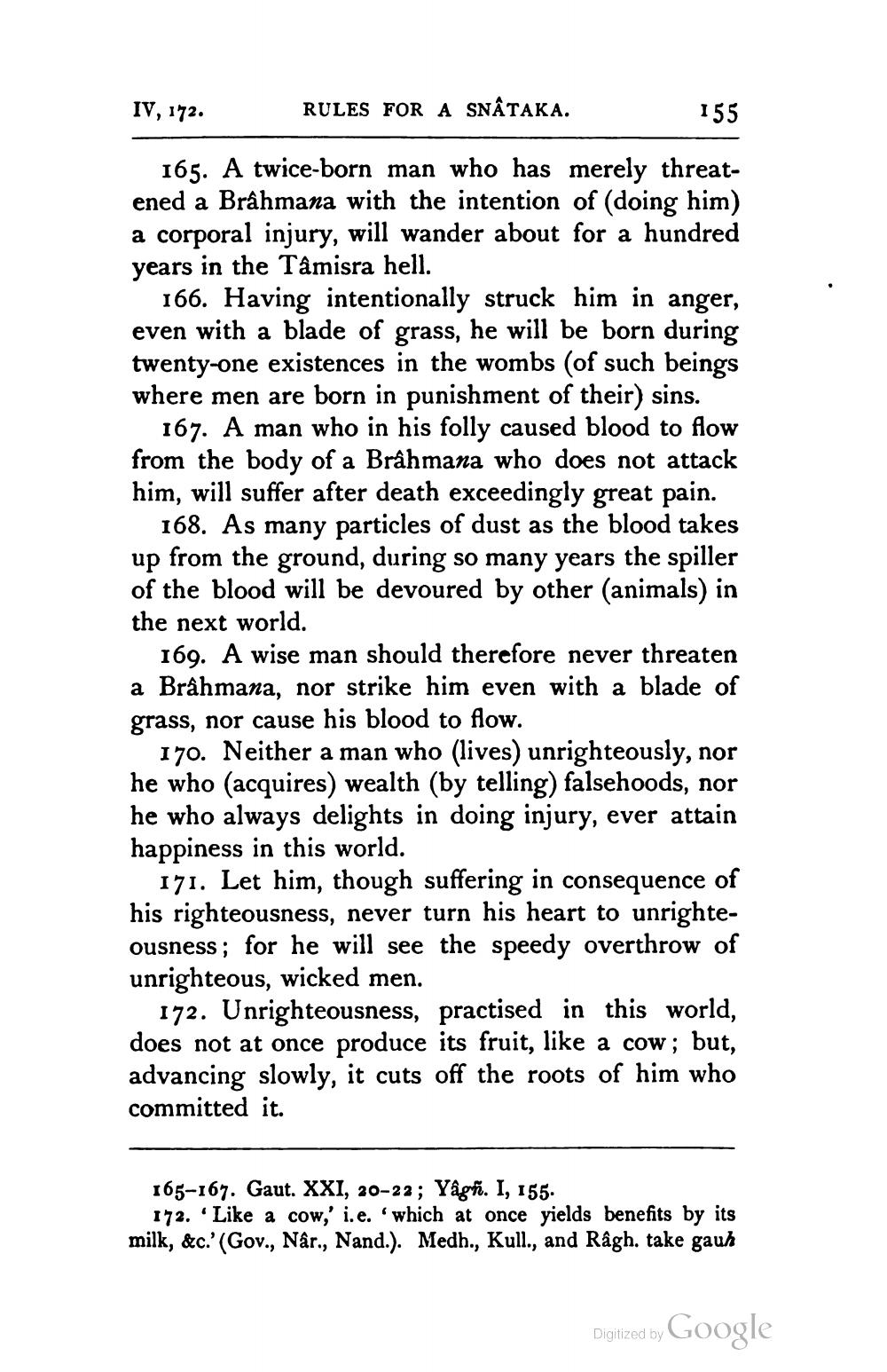________________
IV, 172.
155
165. A twice-born man who has merely threatened a Brahmana with the intention of (doing him) a corporal injury, will wander about for a hundred years in the Tâmisra hell.
RULES FOR A SNATAKA.
166. Having intentionally struck him in anger, even with a blade of grass, he will be born during twenty-one existences in the wombs (of such beings where men are born in punishment of their) sins.
167. A man who in his folly caused blood to flow from the body of a Brahmana who does not attack him, will suffer after death exceedingly great pain.
168. As many particles of dust as the blood takes up from the ground, during so many years the spiller of the blood will be devoured by other (animals) in the next world.
169. A wise man should therefore never threaten a Brahmana, nor strike him even with a blade of grass, nor cause his blood to flow.
170. Neither a man who (lives) unrighteously, nor he who (acquires) wealth (by telling) falsehoods, nor he who always delights in doing injury, ever attain happiness in this world.
171. Let him, though suffering in consequence of his righteousness, never turn his heart to unrighteousness; for he will see the speedy overthrow of unrighteous, wicked men.
172. Unrighteousness, practised in this world, does not at once produce its fruit, like a cow; but, advancing slowly, it cuts off the roots of him who committed it.
165-167. Gaut. XXI, 20-22; Yâgñ. I, 155.
172. 'Like a cow,' i. e. 'which at once yields benefits by its milk, &c.' (Gov., Nâr., Nand.). Medh., Kull., and Râgh. take gauh
Digitized by
Google




